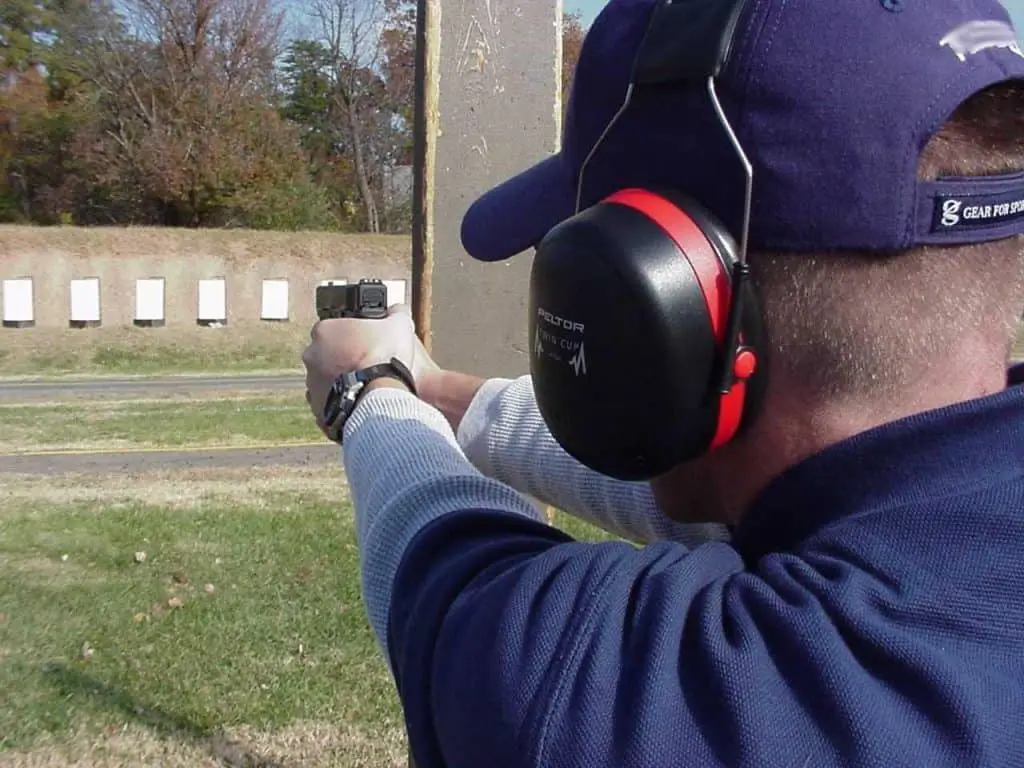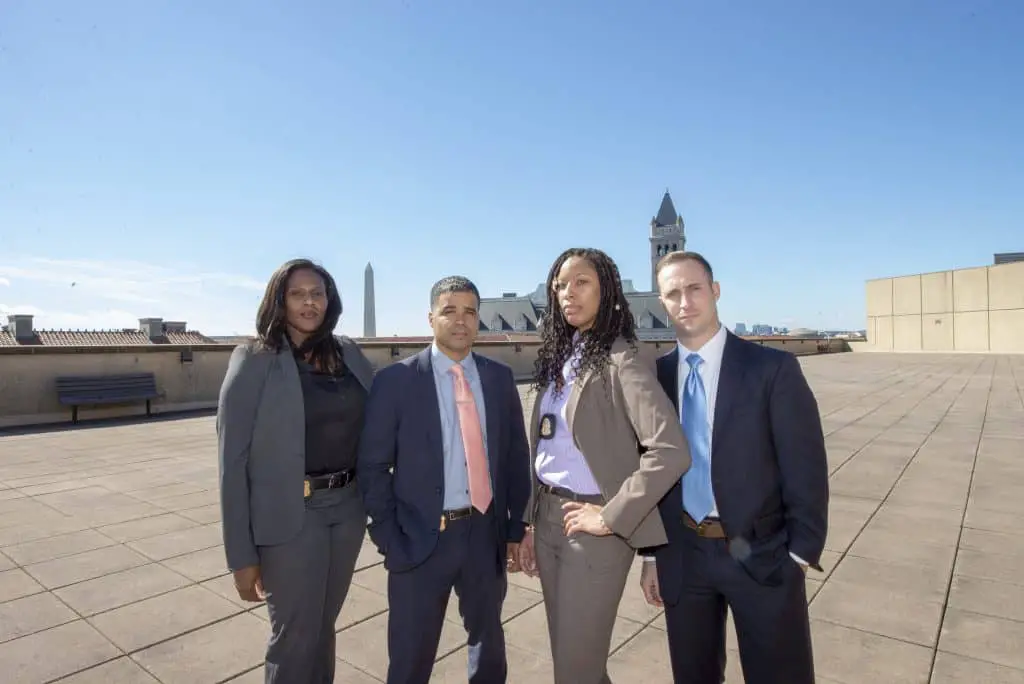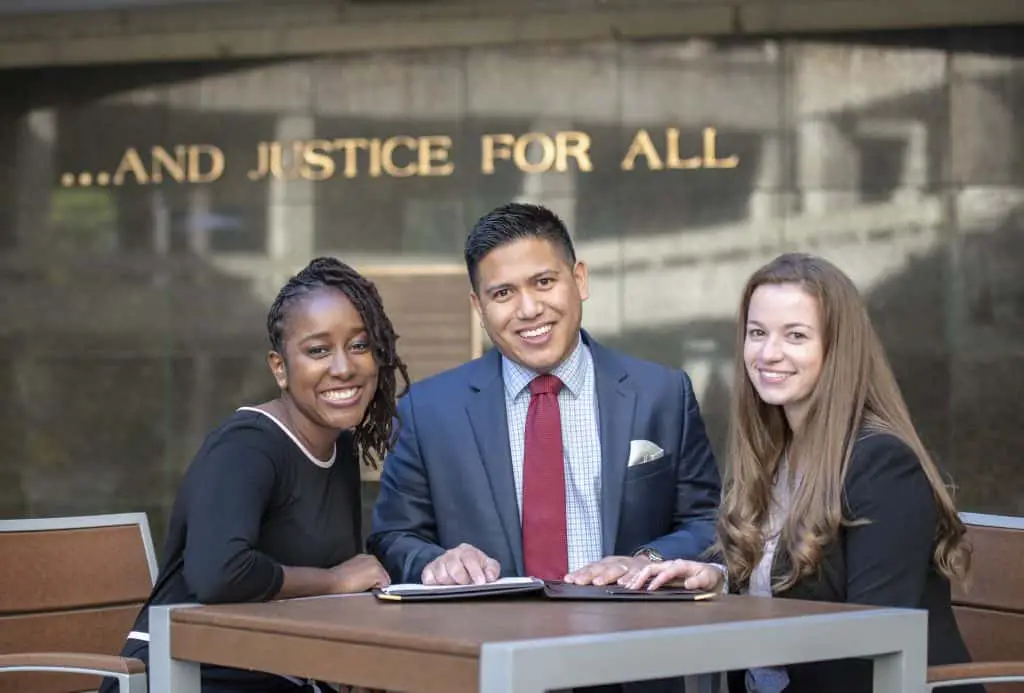
The FBI is a focus of a lot of the media. In addition to fascinating cases seen on the news, TV and movies feature the FBI and ideas of what it is like to be a part of them. Is an undercover case like that we’ve seen on Miss Congeniality? Is training similar to an episode of Quantico? With so many aspects of FBI work being confidential, the entertainment industry does have to fill in some unknown gaps and goose unsexy dialogue with some creative writing. With that said, just what is the FBI and what is their training process? The Department of Justice and FBI websites are overflowing with information, including the boring bits that nobody wants to dig through. For your convenience, we’ve put together the most common questions about the FBI and Quantico.
ALL ABOUT THE FBI
What is the Job of the FBI?
The duty of the FBI is to protect the United States from terrorist and intelligence threats, foreign and domestic, as well as to enforce the US’ criminal laws, and to perform its duties in a manner that meets the needs of the public and in accordance with the Constitution of the US.
The FBI top priorities include:
- Protect the US from terrorist attack;
- Protect the US from intelligence operations and espionage;
- Protect the US from cyber-based attacks and high-technology crimes;
- Combat public corruption at all levels;
- Protect civil rights;
- Combat criminal organizations and enterprises;
- Combat white-collar crime;
- Combat significant violent crime;
- Support federal, state, county, municipal, and international partners; and to
- Upgrade technology to successfully perform the FBI's mission.

What is the Primary Responsibility of the FBI?
The Mission of the FBI is “To protect the American people and uphold the Constitution of the United States.” As a part of this, functions of the FBI include:
- Conducting investigations and intelligence collection to try to identify and counter any threats posed by domestic or international terrorists, or their supporters, within the United States, and pursuing criminal investigations to bring perpetrators of such terrorist acts to justice. Thus, the FBI designs, develops, and implements counterterrorism measures which enhance the FBI’s ability to minimize the terrorist threat.
- Conducting and coordinating counterintelligence activities of other intelligence agencies within the United States. (Executive Order 12333 includes international terrorist activities in its definition of counterintelligence.)
- Coordinating the efforts of U.S. agencies and departments in protecting the US’ infrastructure by identifying and investigating criminal and terrorist intrusions through physical or cyber attacks.
- Investigating violations of laws of the US and collecting evidence in cases in which the US could be an involved party (except when such responsibility is designated by statute or otherwise already assigned to another investigative agency.
- Locating and apprehending fugitives for violations of particular federal laws and, when so necessary, state and local fugitives pursuant to any federal statutory authority.
- Conducting specialized investigations to identify, disrupt, or dismantle currently-existing or emerging criminal enterprises should their activities affect the US. Addressing international criminal organizations or other terrorist groups that may threaten the US citizens and their property, through expanded liaison and the conduct of international, extraterritorial investigations as directed by laws or Executive Orders.
- Gathering, analyzing and assessing information, or intelligence, of planned or committed criminal acts.
- Establishing and implementing special outreach programs that will enhance FBI and community partnerships, and sharing.
- Conducting personnel investigations when needed for the work of the Department of Justice, or whenever else required by statute.
- Establishing and conducting law enforcement training programs, as well as providing assistance to state and local law enforcement personnel.
- Participating in interagency law enforcement activities which address criminal issues common to particular federal/state/local agencies.
- Developing new techniques, systems, and equipment to improve and strengthen law enforcement, and assist in conducting related state, local, and international law enforcement training programs.
- Providing timely and relevant information and identification services concerning individuals, stolen property, known criminal organizations and activities, localized crime statistics, and other law enforcement related data, not only to the FBI, but to specified law enforcement, criminal justice, government, civilian, education, employment, and firearms sales organizations.
- Operating the FBI Laboratory not only to serve the FBI, but also to provide complimentary technical and scientific assistance, such as expert testimony in federal or local courts, for all designated law enforcement agencies, other units within the Department of Justice, and other federal agencies; as well as providing identification assistance in mass disasters and for other humanitarian purposes.
- Reviewing and assessing operations and function performance to ensure adequate compliance with any laws, rules, and regulations and to ensure the efficiency, effectiveness, and economy of operations.
- Effectively and appropriately communicating and disclosing information on any particular FBI mission, accomplishments, operations, and values to Congress, the media, and the general public.

How Old is the FBI?
Joseph Bonaparte, Attorney General, issued an order to create an investigative agency in the Department of Justice in 1908. In 1909, AG George W. Wickersham confirmed the Order, creating the Bureau of Investigation. In 1935, Congress designated it the Federal Bureau of Investigation.
Is the FBI Part of the Government?
Yes. The FBI is a part of the federal government.
What Kind of Agency is the FBI?
The FBI is an investigative agency with a focus on terrorism or a threat to the constitution of the US.
How Many Agents are in the FBI?
How many FBI agents are there in the United States? That is difficult to determine as many agents travel to other countries to tend to international criminal or terrorist activity. How many agents in the FBI, as a whole (based on the proposed 2020 Budget): 13,201 special agents.
How many FBI employees are there?
The 2020 Budget supported a total of 35, 558 positions. Of this, 13, 201 are agents, 3,115 are intelligence analysts, and 19,242 are professional functioning positions.
Are All FBI Agents Lawyers?
No. Depending on the education of the agent, they may not be an attorney. Legal services, such as litigation, are usually performed through those in professional functioning positions.
How Much Do Special Agents Make?
How much do FBI get paid for professional functioning positions? This varies greatly depending on the position such as clerk or director. Though, for hours worked, it isn’t uncommon for salaried positions where particular employees work 60 hours per week (such as an internal legal counsel) wind up having an hourly pay that is less than an executive assistant who only works 40 hours each week.
How much does an FBI Special Agent make? FBI Special Agents average $65,220 per year. The entry-level salary starts at $39,000 with the highest reported salary capping at $119,000.
What's the FBI's Number?
The FBI has a total of 56 field offices to serve as local points of contact throughout the country. You can find your local office by following this link. The contact information of the FBI Headquarters is:
FBI Headquarters
935 Pennsylvania Avenue, NW
Washington, D.C. 20535-0001
(202) 324-3000
There is no general email address at this time, though many field offices do have their own general email address.
Do FBI Agents Travel?
Administrative staff do not always travel, but FBI Agents do as criminals and terrorists are not always considerate enough to perform their activities near a field office.
What Does it Take to Become an FBI Agent?
To become a Special Agent of the FBI, you have to pass a mentally and physically challenging selection process designed to only permit the most capable of applicants.
Due to the high level of trust and commitment required for a special agent position, it is crucial that prospective agents be able to:
- Adhere to the highest standards of conduct, especially in maintaining honesty and integrity.
- Be available for worldwide assignment on either a temporary or a long-term basis.
- Work a minimum of 50 hours a week (which may include non-business, erratic hours) and be on-call 24/7, including holidays and weekends.
- Maintain a high level of fitness as necessary to complete the FBI Academy at Quantico and hold it throughout your career.
- Carry a firearm as well as be willing to use deadly force, if necessary.
- Be willing and able to be active in arrests, execution of search warrants, and other potentially-dangerous assignments, all of which present some risk of personal bodily harm (sometimes to yourself).

Specific employment requirements of a Special Agent of the FBI are that the candidate/applicant:
- Be between 23 and 36 years of age.
o FBI Special Agents have a mandatory retirement age of 57. In order to achieve the required 20 years of service for retirement, Special Agents must enter on duty no later than the day before their 37th birthday. Outside applicants must apply for the Special Agent position prior to their 36th birthday to allow adequate time to complete the Special Agent Selection System. The FBI may disqualify applicants at any time if it is determined that they will reach age 37 before appointment.
o Current FBI employees must apply prior to their 39th birthday and must be appointed and assigned to the FBI Academy no later than the month of their 40th birthday.
- Have a bachelor’s degree (or higher) from a US-accredited college or university.
- Have at least two years of full-time work experience; or one year if you possess an advanced degree (master’s or higher).
- Possess a current, valid driver’s license and six months of actual driving experience.
- Meet the specified physical fitness standards.
- Be able to report to one of the field offices for interviews, or testing, several times through the application process. Applicants are responsible for their own travel to and from the designated field office. Applicants who currently reside overseas must be able to travel to the US for testing and processing at a designated field office at their own expense (you may choose the field office that is most convenient for you). While travel from any overseas location to the Processing Field Office (PFO) is solely the responsibility of applicants, any travel for Phase II testing out of the PFO will be paid by the FBI.
- If applicants are currently on active duty in the military, they must be within one year of completing their service before submitting an application.
To work for the FBI in any position, to include professional services, all applicants must be a US citizen, eligible for a US Top Secret (SCI - Sensitive Compartmented Information), and in compliance with the FBI’s own drug policy. Below are instant disqualifiers for any employment candidate of the FBI:
- Non-U.S. citizenship;
- Conviction of a felony (Special Agent only: conviction of any domestic violence misdemeanor or more serious offense);
- Violation of the FBI Drug Policy;
- Default on a student loan insured by the U.S. Government;
- Failure of an FBI-administered urinalysis drug test;
- Failure to register with the Selective Service System (for males only, exceptions apply – please click here to find out more);
- Knowingly or willfully engaged in acts or activities designed to overthrow the U.S. government by force;
- Failure to pay court ordered child support; or
- Failure to file federal, state, or local income tax returns.
It only takes any one of the above to be ineligible for employment with the FBI.
What Degree Do You Need to be an FBI Agent?
There is not a specific degree that is required for becoming an agent, only that you have at the minimum a four-year degree from an accredited college or university. Naturally, special interest will be given to majors that are related to the work of an FBI agent. For example, a degree in Criminal Justice will be more preferred to a degree in Fashion Merchandising.
Now that we have covered the FBI Service Agent information, it is time to look into the FBI Academy - often referred to simply as “Quantico”. Is it a glorified police academy? A 21-week boot camp?

TOP FBI ACADEMY QUESTIONS
What Does an FBI Special Agent Do?
FBI Special Agents are investigators on behalf of the federal government of the US. Their tasks, aside from the general duties described above, can include:
- Identifying issues and evidence based on complaints or allegations of criminal or terrorist activity;
- Preparing detailed reports of case progress and findings;
- Searching for and collecting evidence, including fingerprints, DNA samples, or computer records;
- Recording interviews using audio or visual equipment beyond cell phones; and
- Interviewing suspects and potential witnesses to obtain or verify information.
How Hard is it to Become an FBI Agent?
Very. FBI Agents are responsible for some pretty important work, so they created quite the screening process to ensure that not just anyone can become an agent. Graduating college and working for a couple of years, while being able to do a few push ups, isn’t enough to cut it. Candidates must be able to perform a certain number of push-, pull-, and sit-ups within one minute, as well as perform timed 300-meter sprints and 1.5-mile runs. Vision and hearing must be near perfect.
How to Become an FBI Agent Step by Step
The Special Agent Selection System (SASS) is performed as follows:
- Application and Screening. This is the basic introductory paperwork that is completed, along with submitting any relevant documents such as certificates, DD-214, or transcripts.
- Phase I Test. This is a three-hour computerized test consisting of logic-based reasoning, figural reasoning, personality assessment, preferences and interests, and situational judgment.
- Required Information. If a satisfactory completion of the Phase I Test is achieved, the agency will reach out for additional information to include a self-assessed physical fitness test, and skills and language sections.
- Meet and Greet Session / Review Process. Evaluators conduct an in-person assessment of the application and additional information provided. This will be used to evaluate if a candidate is a good fit to move on to the Phase II Test.
- Phase II Test. This is a writing assessment as well as a structured interview with a panel of three Special Agents.
- Official Physical Fitness Test (PFT). Candidates who pass the Phase II Test will be sent to a local field office to be administered the PFT by a trained agent.
- Conditional Appointment Offer (CAO). Those who pass the Phase II Test and the PFT will be extended a CAO offering employment contingent upon successful completion of the remaining SASS items.
- Background Investigation. An in-depth investigation is performed to ensure that the applicant is indeed worthy of a top secret clearance.
- Basic Field Training Course (BFTC). Upon completion of the background investigation, now it is time to begin the 19-week training program held at the FBI Academy in Quantico, VA.

What to Study to Become an FBI Agent
If you’re interested in becoming a Special Agent for the FBI, it never hurts to study ahead. Though they accept any four-year degree, a degree with a particular focus on criminal justice will get more preference. Monitoring trends can help with this. For example, with the rise of computer crime, computer forensics may be a speciality in high demand.
How to Apply for the FBI Academy
How to apply for FBI Academy training is not the same as how to apply to community college. The actual academy training is Step 9 in the process of becoming an agent, with steps 1-8 consisting of the initial written application process and written testing.
Click here to begin the application process for FBI Special Agent. Be sure to not skip any "See attached file" icons.
How to Get Into Quantico
There is no guaranteed process of how to get into the FBI Academy. The best way to increase your chances is to become as desirable for the needs of the FBI as possible. This can include obtaining a degree in an area that the FBI may be particularly interested in, such as a forensic science with a focus. Advanced degrees will be extra impressive over general degrees.
Military and police service are of interest to the FBI. As a part of their duty is to uphold the law, having a background in the law enforcement arena offers experience that other candidates will not likely possess.
Physical fitness is a priority to being a Special Agent. Already being in great physical condition can make the physical test a mere formality versus a potential obstacle in your FBI career.
Can You See Your Family During FBI Training?
When first reporting to the FBI Academy, you are required to remain “in-house” for the first couple of weekends. However, provided that studies are kept up and all areas of performance are satisfactory, weekends can be used for visiting family.
What is the Average Salary of an FBI Agent?
FBI Special Agents average $65,220 per year.
However, the entry-level salary starts closer to $39,000, annually, with the highest reported salary being around $119,000.

How Long is the FBI Academy?
How long is the FBI Academy training total? 21 weeks.
- Weeks 1 - 12: Academic Training. The first 12 weeks of training are dedicated to the on-paper aspects of investigations. For those who are focusing on intelligence analysis, graduation is upon conclusion of this period.
- Weeks 13-20: Tactical Training. For Special Agents, training is continued to put into practice all of the physical aspects of being an agent, including firearms training, self-defensive tactics, and defensive driving.
- Week 21: Special Agent graduation.
Candidates are constantly being assessed for the following suitability standards:
- Judgement
- Conscientiousness
- Integrity
- Emotional Maturity
- Initiative
- Cooperation
Failure to uphold these suitability standards can result in being dismissed at any point of the training.
How Long Does it Take to be an FBI Agent?
It takes four years of education and two years of full-time work, minimum, to even apply for FBI Special Agent jobs. The application process generally takes one year, and that is assuming that there are no issues holding up the security clearance (which, alone, can take a year and a half).
What Are the Different Types of FBI Agents?
Special Agents work across a variety of areas to include terroristm, cybercrime, and crimes against children. After two years, Special Agents are eligible to join mission-centric units that have a specialty focus. These include:
- Hostage Rescue Team (HRT). An elite team that supports high-risk arrests and dignitary protection.
- Special Agent Bomb Tech Program (SABT). This team of agents deal with suspicious packages or even potential weapons of mass destruction.
- Special Weapons and Tactics (SWAT) Team. Tactical specialists including snipers and breachers designed to take on high-risk situations.
- Evidence Response Team (ERT). This unit provides forensic preservation and collection.
- Operational Medic Program. With so many agents being at risk of injury in the field, the FBI has created its own internal medical response team.

How to Become Undercover FBI Agent
How to be an undercover FBI Agent is a matter of being assigned to an undercover operation. In order for an operation to be performed undercover, the Attorney General has established a set of guidelines with specific criteria that must be met and approved including the authority who gets to decide on whether or not an operation may be undercover.
How to Become an FBI Detective
A detective position with the FBI is similar to that of the general police force in that it is a position that is often promoted into unless an outside prospect has greater equally-relevant experience.
How to Become a Linguist for the FBI
If you speak multiple languages, and meet the other job requirements, you can contribute to the FBI without becoming a full Special Agent. In addition to there being in-house positions for translators, there are even contract linguists working for the FBI.
Interested?
Have we piqued your interest yet? If you're thinking about a career in the FBI, make sure to check out our article on FBI careers.
If the FBI doesn't sound like your thing, never fear! We have tons of info about all kinds of careers in criminal justice. Good luck!
